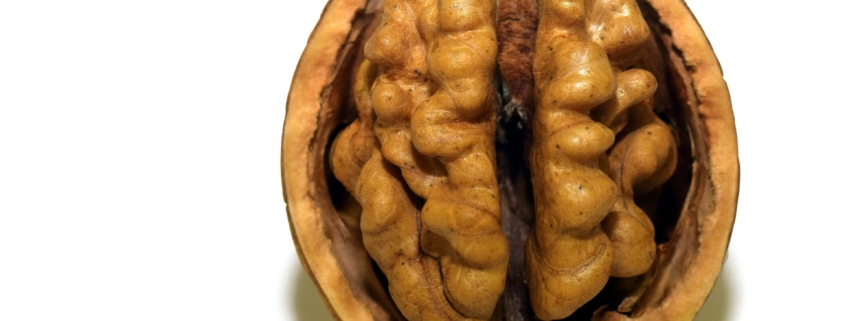What are the Top Five Brain Foods?
The term ‘brain food’ has been around for a long time and is often used as a way to encourage people to eat better. But is there any truth in such brain foods? Do they actually support healthy brain function? In this article, we take a deep dive into brain foods to find out the truth and which foods are best for brain health. So, with that in mind, what are the top brain foods?
The top brain foods that will help to keep your brain in peak working condition include (but are not limited to):
- Fatty fish
- Berries
- Spices such as turmeric
- Nuts and seeds
- Eggs
Read on to learn more about brain food and what you should be eating more of to support better brain health.
What Food is Good for the Brain?
There is a whole manner of food and drink that are good for the brain, but some are better than others. Think of the type of food and drink that has always been drilled into your brain as being “healthy” – fatty fish, green vegetables and nuts.
But, there are also a few curveballs in there that you might be surprised to learn are good for brain health. The odd bit of dark chocolate can actually be quite good for you!
Which Fruit is Best for the Brain?
It’s widely agreed across the medical community that berries (blueberries in particular) are the best fruit for brain health. Additionally, the high levels of vitamin C found in oranges may help to prevent mental decline. One study also associates higher levels of vitamin C in the blood with improvements in focus, memory and decision speed.
Which Vegetables are Best for the Brain?
Leafy green vegetables such as broccoli, kale and spinach are rich in brain-healthy nutrients such as vitamin K, lutein, folate and beta carotene, which research suggests may help to slow cognitive decline.
What Protein is Best for the Brain?
Fatty fish such as salmon and tuna are great sources of omega-3. Omega-3 is a healthy unsaturated fat that has been linked to lower blood levels of beta-amyloid, the protein that forms damaging clumps in the brains of people with Alzheimer’s.
The Top Five Brain Foods
Below we go into more detail about the top five brain foods that you should be eating.
Fatty Fish
As we said above, fatty fish such as tuna, sardines and salmon are great sources of omega-3. Alongside lowering the level of beta-amyloid in the blood, omega-3 may also boost cognition and thinking abilities.
But beware, not getting enough omega-3 is linked to cognitive impairments and depression.
Learn more about the benefits of omega-3 and fish oil in our detailed blog.
Blueberries (And Other Berries)
Blueberries are a particularly good brain food due to their anti-inflammatory and anti-oxidant benefits. This acts against oxidative stress which can contribute to brain ageing and neurodegenerative diseases.
Additionally, some of the antioxidants in blueberries have been found to accumulate in the brain and help to improve the communication between brain cells.
Turmeric (And Other Spices)
The active ingredient in turmeric, curcumin, has been shown to be able to cross the blood-brain barrier – meaning that it can directly enter the brain. It has a potent anti-oxidant profile that may have a wide range of benefits, including:
- improved memory in people with Alzheimer’s;
- easing depression by boosting serotonin and dopamine;
- helping new brain cells to grow by boosting a growth hormone.
Nuts and Seeds
Nuts and seeds, in particular walnuts and pumpkin seeds, are excellent for brain health. Pumpkin seeds contain a wealth of nutrients that are great for brain health, including:
- zinc and copper, which are crucial for brain signalling;
- magnesium, which supports learning and memory;
- iron, which helps to reduce “brain fog”.
Meanwhile, nuts like walnuts are a great source of healthy fats and protein, both of which are linked to improving memory.
Eggs
We all know how good eggs are for the body, but they’re also great for brain health as they contain vitamins B6 and B12, folate, and choline – an essential micronutrient that helps to regulate mood and memory.
Meanwhile, consuming B vitamins may help to slow the progression of mental decline in older adults. However, not getting enough has been linked to depression.
Likewise, studies suggest that folic acid may help to minimise age-related mental decline.
Bonus Surprises
The top five brain foods listed above probably come as no surprise. But there’s a couple more that might shock you:
- Tea and coffee – the caffeine found in tea and coffee can support brain health by increasing alertness, improving mood and sharpening concentration. Over time, it may also reduce the risk of neurological diseases such as Alzheimer’s and Parkinson’s.
- Dark chocolate – Dark chocolate of 70% or higher cocoa solids contains brain-boosting compounds such as flavonoids, caffeine (see above) and anti-oxidants. These compounds may enhance memory, slow age-related mental decline, improve mood and support a better gut biome.
What are the Best Supplements for Brain Function?
Whilst eating brain foods helps to support healthy brain function, sometimes, these foods don’t actually contain enough of the vitamins, minerals and other good stuff to fully benefit the brain. That’s why supplements are so important.
For brain health, we recommend the following supplements:
- Magnesium, In particular Magnesium L-Threonate
- Zinc Complex
- Omega-3 Ultra
- Vitamin B Complex
- Carnitine, In particular Acetyl L Carnitine
- Chlione, In particular GPC Liquid 59ml (Glycerophosphocholine)
- Myo Inositol
Supplements for Brain Health at Human Performance Hub
At Human Performance Hub, we recognise the importance of brain health and stock a wide range of supplements to support it. Take a look at our range today, or get in touch with us for information about which supplements you need.


